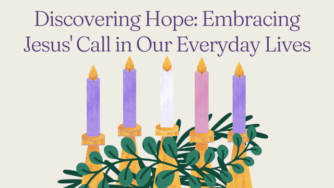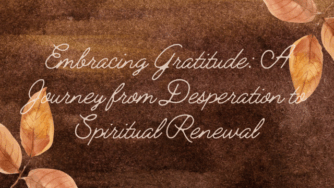A Difficult Lessons from Ruth’s Story
Difficult times can be the hardest to find any hope. Jim’s sermon delved into the opening chapter of Ruth, drawing out powerful lessons about finding hope in the midst of hard times. As we embark on this new series exploring the Old Testament book of Ruth, we’re reminded that every part of the Bible, whether Old or New Testament, points us towards the hope, joy, and truth found in Jesus Christ.
The book of Ruth is set in a tumultuous period, sandwiched between the eras of the great Moses and Joshua and the rise of the kings Saul and David. It unfolds against the backdrop of the chaotic times described in the Book of Judges, where there was no defined ruler, and people continuously fell into sin, only to be redeemed by God’s appointed judges. Jim aptly described this period as “a schizophrenic time” when the people struggled to discern who was truly in charge, echoing the uncertainties we often face in our own lives.
The opening chapter of Ruth sets the stage with a series of tragedies befalling Naomi and her family. Famine strikes the land, prompting Naomi’s husband, Elimelech, to seek refuge in the foreign land of Moab. Yet, tragedy follows as Elimelech dies, leaving Naomi a widow. Her two sons marry Moabite women, but they too meet untimely deaths, leaving Naomi bereft of both her husband and sons.
In the face of such devastating loss, Naomi decides to return to her homeland, Bethlehem. She encourages her daughters-in-law, Orpah and Ruth, to return to their families in Moab, releasing them from their obligations. The difficult times made her believe she could not stay where they were. Orpah tearfully bids Naomi farewell, but Ruth’s response is a profound declaration of loyalty and devotion: “Where you go, I will go, and where you stay, I will stay. Your people will be my people and your God my God.”
Ruth’s answer is difficult to believe but her unwavering commitment to Naomi exemplifies the power of love and faith amidst adversity. Her decision to accompany Naomi back to Bethlehem marks the beginning of a remarkable journey of redemption and restoration.
As Jim emphasized, Naomi’s bitter lament upon her return to Bethlehem reflects the deep anguish and sense of abandonment she feels as any one would feel through difficult times like these. She even asks to be called “Mara,” meaning bitter, instead of Naomi, which means pleasant. Yet, even in her despair, Naomi’s faith remains steadfast. Despite her hardships, she clings to the belief that God is present and working, even when His providence seems obscured by suffering.
In Ruth’s story, we find echoes of our own struggles and uncertainties. Like Naomi, we may experience seasons of hardship, loss, and despair. Yet, Ruth’s unwavering faith and commitment remind us that even in our darkest moments, God is with us, offering hope and redemption.
Jim’s sermon gives us the difficult challenge to persevere in faith, even when life’s circumstances seem overwhelming. It reminds us that God’s love is steadfast and His promises are unwavering. Through Ruth’s story, we’re reminded that even in the darkest of times, God is at work, weaving together a beautiful tapestry of redemption and restoration.
As we journey through the book of Ruth in the coming weeks, may we be inspired by Ruth’s example of faith and perseverance in the middle of difficult times. May we trust in God’s unfailing love and remain steadfast in our commitment to Him, knowing that He is always with us, guiding us through every trial and hardship.
In conclusion, Jim’s sermon serves as a poignant reminder that even in the midst of life’s storms, we can find hope and strength in God’s presence. Ruth’s story is a testament to the power of faith, love, and redemption, offering us encouragement and inspiration as we navigate our own journeys of faith.
Let us hold fast to the hope found in God’s promises, knowing that He is with us always, guiding us through every trial and leading us to a place of peace and restoration.









